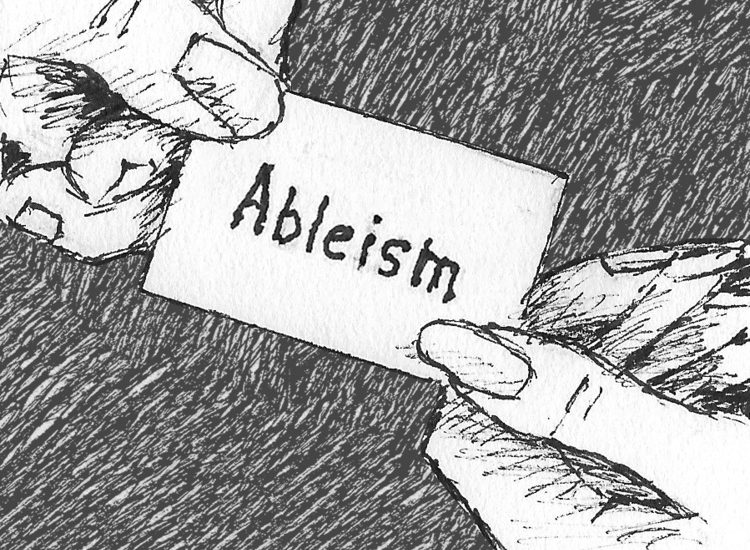
KJIPUKTUK (Halifax) – We rightly hear a lot about the COVID-19 related risks faced by people incarcerated in Nova Scotia’s jails and prisons.
See also: Why some Canadian prisoners should be released during the coronavirus pandemic
What is more or less forgotten is that the 800 to 900 citizens labeled as living with disabilities who live in institutions in this province are facing the very same risks. And much like the people in prison, for many there is no need for them to be locked up.
It appears that all the institutional facilities, just like prisons and long term care facilities, in question are in lockdown, no visitors allowed.
Yet they are an accident waiting to happen. People who are institutionalized share bathrooms, dining rooms, and often even bedrooms. All it takes is one worker unknowingly transmitting the virus, and it could spread rapidly among residents and staff alike.
Marty Wexler is chair of the Disability Rights Coalition, an alliance of individuals and over 32 groups committed to promoting deinstitutionalization and the interests of all persons with disabilities.
Unlike during the H1N1 crisis he feels out of the loop.
“To my knowledge nothing has been sent out to the community. All we have heard is ‘follow your pandemic plan’. There are a lot of older clients who also live with disabilities. Although it hasn’t struck yet, we all know it’s just a matter of time,” says Wexler.
“I don’t know what you can do,” says Wexler. “The things scientists tell us are very important, social distancing and self-isolation, you can’t do those in an institution.”
“All you can do is implement all the precautions. Staff will have to be very vigilant in how they take care of themselves, and management must make sure that they get paid when they have to stay home,” he says.
Cindy Carruthers, the Executive Director of People First Nova Scotia, is also worried. She wants the government to act.
People First Nova Scotia is a self-advocacy organization that represents people who have been labeled as living with intellectual disabilities. Its motto is ‘Nothing about us without us’.
“If we’re going to release prisoners from prison, we should also be releasing those that can be released from institutions, people who don’t need 24 hours supports or anything. There are many who could go to a hotel, or go home and stay with their families,” Carruthers tells the Nova Scotia Advocate.
“Our institutions are full of people who could easily be integrated back into the community, who could live in independent living, with minimal support. But they’re not even looking at that,” Carruthers says.
If it does mean more emergency funding, well, so be it, Carruthers says. Do what it takes!
“The government is finding additional money for all kinds of people affected by the pandemic. They should absolutely be looking at these vulnerable populations that are locked up in institutions. They are also at risk, as much as anybody else,” she says.
Meanwhile Kelly Regan, the minister of Community Services, is busy looking the other way.
As we reported earlier, Regan attended yesterday’s government briefing on the COVID-19 situation.
Tim Bousquet of the Halifax Examiner asked the minister about the virus-related risks faced by the people who are warehoused in institutions.
You should ask the association that runs these places, I can set something up for you, was all Regan said, suggesting that none of this is her responsibility. Never mind that the institutions are fully funded by the province and that the department is ultimately responsible for the residents’ well being.
There’s a word for what’s happening here. It’s called ableism. Austerity also is a factor.
Last year I attended quite a bit of the human rights tribunal that considered the plight of people locked up in institutions against their will and without any medical need.
One of the most powerful witnesses was Dr. Catherine Frazee, a retired Ryerson disability studies professor, activist, poet and writer who now lives in the Annapolis Valley.
Ableism is the term that describes this unconscious tendency to consider able-bodied people the norm, and people with disabilities as deviating from that norm, and somehow of lesser value. Like sexism and racism, ableism diminishes the perspectives of others, Frazee explained.
Austerity comes into play when you consider that it is much cheaper to either warehouse people, or have them live with parents or loved ones, rather than provide them with the complex supports required for community living. It almost becomes like a cost-benefit analysis, said Frazee.
That pretty well explains the current inaction.
With a special thanks to our generous donors who make publication of the Nova Scotia Advocate possible.
Subscribe to the Nova Scotia Advocate weekly digest and never miss an article again. It’s free!




I completely agree that the vast majority of people living in these institutional settings do not need to be there, would be better served in small and supportive community based homes, and are now at even graver risk than they were pre-Covid-19. I would just ask that we think carefully about putting forth any solution wherein a lot of these folks are going to be going home to live with their parents, as in most cases this would not be appropriate, safe, or even possible. There are already too many adults with disabilities living with aging parents in Nova Scotia, precisely because our governments have dragged their heels for decades to avoid funding new community based options and because most parents will protect their adult children from institutional alternatives at any cost and for as long as they can. But we are talking about the lives of young adults who deserve a say in how, where and with whom they are going to live. Children are meant to outlive their parents and, as such, are encouraged to make their way in the world before their parents die or loose the capacity to provide what they need. The current government needs encouragement to do what they have promised in this regard. They do not need encouragement in terms of downloading responsibility to families, as that has long been their default.